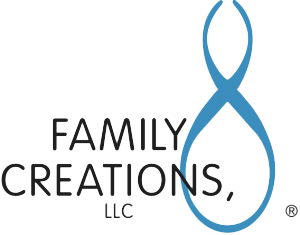
Factors Involved in Surrogacy vs. Adoption: Cost, Medical Care, & More
If you’re seeking to begin the journey of parenthood, you may struggle to understand the difference between surrogacy vs. adoption practices. This feeling is completely natural! Both options offer a loving way to start a family but also come with unique factors that require consideration. In this article, we’ll discuss the basics, so you can decide which is the best option for you and your family.
Surrogacy vs. Adoption: Genetics
Gestational surrogacy uses in vitro fertilization (IVF) to fertilize a donor egg, which is medically placed into a female surrogate’s womb. The woman who serves as a surrogate carries the developing fetus and gives birth to the child, who is not biologically related to her. When considering adoption, it’s important to remember that the birth mother is the infant’s biological mother.
The surrogacy process also allows intended parents to be the infant’s genetic parents. For instance, a male intended parent can donate sperm to be used to fertilize the donor egg. This genetic tie makes surrogacy a popular option and gives the intended family more control over the process.

Surrogacy vs. Adoption: Cost
While the main focus for intended parents is the joy of bringing a new child into their lives, one of the real-life considerations in the decision-making process of surrogacy vs. adoption is cost. With adoptions, it is illegal for birth mothers to benefit from the process financially. However, surrogates can receive compensation for their service and sacrifice throughout the experience of surrogate pregnancy.
Surrogacy vs. Adoption: Matching Processes
In adoption, it is often the birth mother’s decision to place her infant and select the receiving family. In surrogacy, the intended parents can choose prospective surrogates based on a range of criteria. If the surrogate expresses interest in the match, all involved have an opportunity to get to know each other before finalizing the agreement.
Surrogacy vs. Adoption: Prenatal Care
Surrogates undergo a comprehensive medical screening that includes drug and alcohol use and exposure to harmful substances. In addition, the legal contracts between the intended family and surrogate can include provisions that ensure quality prenatal care.
With adoption, the birth mother may or may not choose to self-disclose drug or alcohol use, social and medical history, and quality of prenatal care.
Surrogacy vs. Adoption: Legal Processes
While the laws pertaining to surrogacy can vary from one state to the next, surrogates do not have a biological connection to the child and cannot keep the infant after birth. This is not the same in the adoption process. With adoption, the birth mother can choose to discontinue adoption plans at any point until she legally provides consent.
Helping Couples Navigate Surrogacy
Surrogacy and adoption are rewarding experiences that allow intended parents to complete their families. If you’re thinking surrogacy is the right choice for you, get in touch with Family Creations. We are not a medical clinic; however, we have over 15 years of experience matching surrogates with families. We connect individuals desiring a family with screened donors and surrogates, fertility specialists, legal experts, and more. Register today and start reviewing our surrogate profiles.
